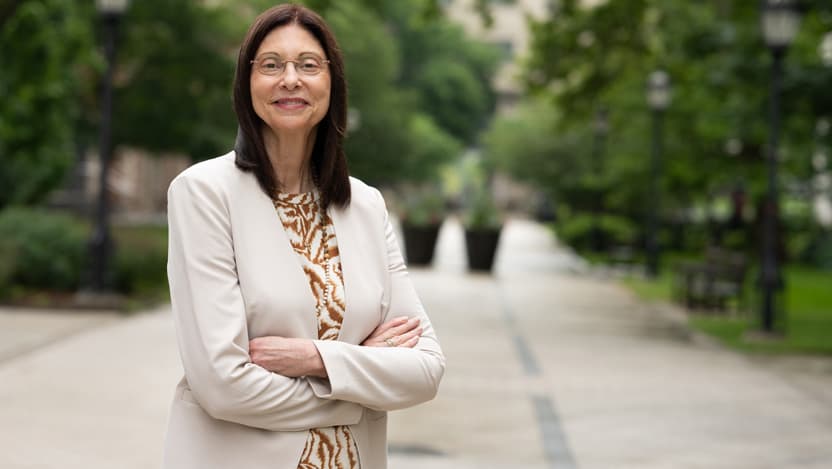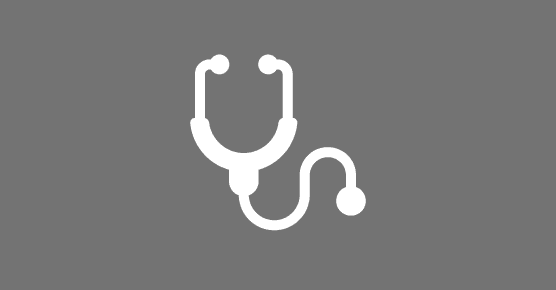UChicago Medicine doctors diagnose Indiana woman's autoimmune disease, reverse a rapid decline in her health

For months, Carla Hawkins felt her health slowly decline. Fatigue and weakness made daily tasks more and more difficult.
The Indiana woman, 59, was unable to keep up with her fast-paced career in customer service. As time passed, she lost the ability to lift her arms over her shoulders or even open a bottle of water. Swallowing food became hard, and she quickly began to lose weight.
Finally, in May 2017, she could no longer deny the truth. Something was very wrong.
“I told my doctor I could no longer function physically, mentally or emotionally. He said, ‘Get to the hospital by midnight.’ So, I walked off the job and checked myself into the hospital,” she said.
At the University of Chicago Medicine, she was immediately placed on a feeding tube. Emaciated, dehydrated and malnourished, she was too weak to roll over for an MRI.
Doctors began treating her symptoms, and Hawkins saw numerous specialists, including ALS and multiple sclerosis (MS), but after 10 days, she was discharged without a diagnosis.
“No one could connect the dots,” she said.
Sjögren’s can be challenging to recognize or diagnose because symptoms can mimic those of many other medical conditions, like MS or lupus.
The answer finally came at a follow-up visit with UChicago Medicine neurologist Kourosh Rezania, MD. After studying her case and test results, he reached a surprising conclusion: Sjögren's syndrome was responsible for a constellation of her symptoms.
“Sjögren’s can be challenging to recognize or diagnose because symptoms can mimic those of many other medical conditions, like MS or lupus,” Rezania said. “These types of complex conditions require a multidisciplinary approach to care and treatment, which we were able to provide Ms. Hawkins.”
“I was in disbelief and shock,” Hawkins said. “Because I’d been living with Sjögren's for 22 years.”
Not just a dry-eye disease
Sjögren's (pronounced show-grin's) is an autoimmune disease known for causing uncomfortable symptoms like dry eye and dry mouth. The disease is named after Swedish ophthalmologist Henrik Sjögren (1899–1986), who identified the classic symptoms.
The disease typically causes the immune system to damage salivary and other glands. But the disease can become systemic, attacking tissues and organs throughout the body and causing severe health problems, said Kimberly Trotter, MD.
“Sometimes these smaller symptoms, like dry eyes, can be a harbinger or a clue that something bigger is going on,” Reid said.
Hawkins was initially diagnosed with dry eyes or xerophthalmia at age 37, after seeing her ophthalmologist about her severely dry eyes. Suspecting Sjögren's, he ordered tests and confirmed the diagnosis. Hawkins stopped wearing contact lenses, began using eye drops, and took medication for dry mouth. She thought she had the condition under control and went on with her life.
In some ways, Hawkins is lucky that this diagnosis was suspected and confirmed by her ophthalmologist when it was. Many people – women are more likely to be affected – don’t have a chance to get symptoms like xerophthalmia (dry eyes) or xerostomia (dry mouth) evaluated for a diagnosis of Sjogren’s disease, said Reid. While up to 4 million Americans have Sjögren's, only around 1 million have been diagnosed. And many people, including doctors, don’t realize how serious Sjögren's can be, she added.
Hawkins certainly didn’t. Looking back, she realizes her health had been waning for years.
“I was in denial,” she said. “I have a strong work ethic and tried to push through until I just couldn’t anymore.”
A slow journey to recovery
Now that her care team had a diagnosis, the pieces started falling into place. Sjögren's explained her symptoms.
Along with debilitating fatigue, Hawkins had nerve damage, triggering multiple types of neuropathy. This caused her muscle weakness, balance issues, and low blood pressure, as well as muscle damage. Sjögren's had also attacked her thyroid and adrenal glands, and even her bone marrow, resulting in low blood counts. In addition, Sjögren's caused cognitive issues, including brain fog and memory loss.
Back at home, Hawkins began physical therapy to rebuild her strength, but she was still extremely weak.
“I was overwhelmed at first,” she said. “I felt helpless and hopeless. For the first three months, my husband still had to shower me and dry my hair. It took time to get my upper-body strength back.”
It also took some time to find the right mix of medications to manage her condition. She eventually tried Rituxan, a monoclonal antibody that suppresses her immune system to stop it from attacking her body. She now receives an infusion twice a year.
Because the treatment weakens her immune system, she also receives intravenous immunoglobulin (IVIG), infusions of antibodies that help ward off infections. She also takes a daily dose of hydroxychloroquine, a drug used to treat autoimmune diseases like arthritis and lupus, to relieve her fatigue. Finally, she takes cevimeline to relieve dry eyes, dry mouth, and vaginal dryness.
Hawkins kept the feeding tube for several months. After it was removed, her esophagus had to be stretched three times so she could resume eating and swallowing on her own.
And with ongoing issues with her heart rate and blood pressure, she received a pacemaker a year after her diagnosis.
Finding her joy again
Hawkins gradually realized she was feeling better. She resumed socializing and walking with friends. Now, she enjoys going to movies and is an avid reader: She loves books about health, personal development, and human behavior.
Hawkins also began going back to church. Reconnecting with her spirituality was an important part of her healing journey.
“At first I was angry at God,” she said. “I felt alone and afraid and I had to accept that I would never return to full time work. I had no idea what the future held. I reached out to God and through his love and mercy, I found hope. Through his strength, and partnering with UChicago Medicine doctors, I have a quality life.”
Hawkins found healing and empowerment through advocacy, too. She is active with the
Schedule an Appointment

Second Opinions at UChicago Medicine
We welcome patients who seek second opinions and offer both on-site and remote second opinions. Our experts can confirm your diagnosis and recommend a treatment plan that’s best for you.
